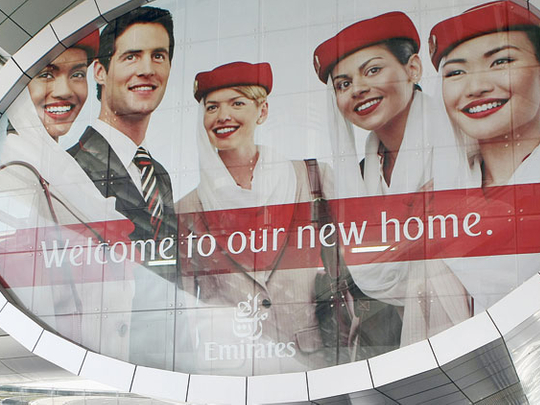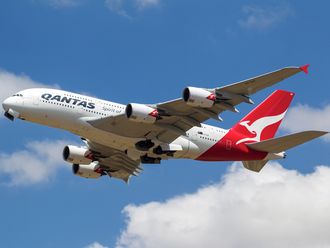
Dubai : Many European airlines that have voiced concern about the growth of travel giants such as Emirates fail to understand the jobs at risk at Airbus if these Middle Eastern carriers hit back by curtailing their orders for A380s and A350s, analysts and aviation officials said as their verbal spat takes a new twist.
"The mantra of securing specialist aerospace jobs ranks top of Europe's priorities, and as we have seen with the recent spat between the UAE and Canada, Europe cannot afford to prevent GCC airline growth within Europe because the risk of Airbus losing big orders is very real," Saj Ahmad, aerospace/airline analyst with UK-based FBE Aerospace, told Gulf News.
"Perhaps this has been a strategy all along by Gulf airlines to leverage their buying power as the price of entry and expansion in Europe, but Air France, British Airways, Lufthansa and a host of other EU airlines are in contrast very badly managed, poorly run and cannot hang to the belief that Gulf state subsidies prop up rivals like Emirates."
A number of European airlines are reported to have teamed up to push for European Union action to slow the growth of Emirates and other Gulf carriers in the region, saying it's status as an air-travel hub is under threat.
"Europe is at the crossroads of international air travel, and this is a role we need to value and defend," Air France Chief Executive Officer Pierre-Henri Gourgeon said this week.
"What we're telling the authorities is that we need a strategy that gives us a chance to resist."
Purchases
An Emirates spokesperson told Gulf News: "This has been an ongoing debate. We are an audited company, we have nothing to hide. We do not receive subsidies from the government."
Export credit is not a new thing. More than 100 airlines use it in aircraft purchases.
"We also do it as it is available. It helps the aircraft manufacturers in export more than the airlines in purchases," he said.
The International Air Transport Association (IATA), the global aviation watchdog, yesterday said there are clearer signs now that the post-recession rebound of international air travel is slowing,
"Europe's air traffic management is a mess and it needs to get better," Giovanni Bisignani, IATA Director General and CEO, said in a statement.
"The need for Europe to achieve the efficiencies of the Single European Sky was evident for the whole world during April's volcanic ash shutdown."
Max Sukkhasantikul, Commercial Aviation Aerospace and Defence analyst at Frost & Sullivan, said: "The European carriers are launching this verbal war as they are under pressure from their own governments whether it is departure taxes, emissions targets, or restrictions on growth.
"In Germany for example there is a tax system aimed at raising 1 billion euros by the government using "green tax" as the umbrella to justify the charges — this is more than the German carriers earn in profits collectively."
In the UK, the current coalition government has a policy of no growth for aviation, which is a bit disappointing considering that air transport is one of the top two key economic contributors to the country.
Saj Ahmad sums up, explaining: "The reality is much different from that. European airlines have been very slow to seek additional access to the GCC region and its only natural that the likes of Emirates, Etihad and Qatar Airways have been filtering traffic through Europe and their hubs because competitors do a lot of talking but not much in the way of servicing customers' needs by offering greater choice.
"European airlines criticising Emirates just goes to show they are looking for a convenient scapegoat for their own inefficiencies."Given the open skies policies the EU has embraced in recent years, it is unlikely they will protect their airlines by stifling additional traffic rights.












